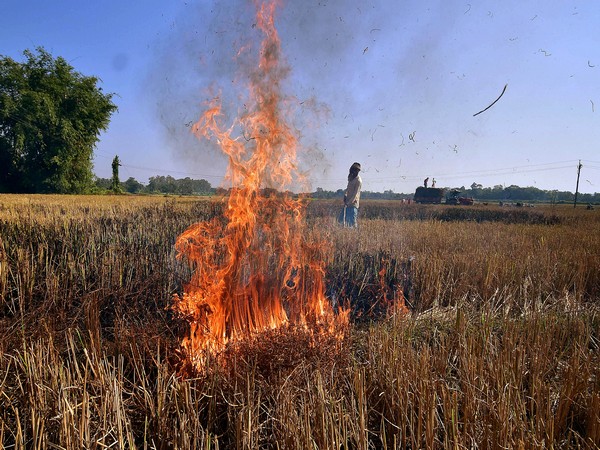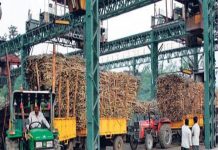Amid growing concerns over stubble burning and pollution ahead of the winter season, Aam Aadmi Party (AAP) leader Malvinder Singh on Monday highlighted the Punjab government’s efforts to tackle the issue, asserting that stubble burning has reduced by 70%.
Stubble burning has long been a major contributor to air pollution in northern India, particularly during the winter months.
Addressing the matter, AAP MP Malvinder Singh Kang said, “The Bhagwant Mann government is working hard to reduce stubble burning. There has been a 70% reduction in stubble burning. The Punjab government is providing alternatives to farmers, as the biggest loss from stubble burning is borne by them. The government is actively working to manage the situation.”
Meanwhile, Punjab Chief Minister Bhagwant Mann reiterated his government’s commitment to combating pollution by promoting the ‘Crop Residue Management Loan Scheme’, which helps farmers access machinery for disposing of stubble without burning it.
In a post on X, the Punjab CM emphasised the state’s commitment to addressing pollution caused by stubble burning.
“Our government is dedicated to tackling the pollution caused by stubble burning. To support this mission, we have introduced the ‘Crop Residue Management Loan Scheme’ through cooperative banks across Punjab,” the post read.
The scheme is designed to provide farmers with Crop Residue Management (CRM) machines at a 50-80% subsidy.
“This initiative empowers our farmers by giving them access to essential machinery for stubble disposal, with subsidies ranging from 50% to 80%. We urge all farmers to take full advantage of this remarkable opportunity and contribute to a cleaner, greener Punjab,” the post added.
Notably, stubble burning is a significant concern in Delhi and neighbouring states, as winter conditions trap pollutants, leading to hazardous air quality and thick smog.
The burning of crop residue in Punjab and Haryana often affects air quality in Delhi, posing severe health risks to residents. With the onset of the stubble burning season, ‘flying squads’ have been deployed in several districts of Haryana and Punjab to monitor such incidents.
The flying squads will assess the ground-level situation and report to the Commission for Air Quality Management (CAQM) and the Central Pollution Control Board (CPCB) on a daily basis, detailing the measures taken to prevent further incidents of stubble burning in the allocated districts, the Ministry of Environment said.
In a recent statement, the Ministry noted that the flying squads from CPCB, assisting CAQM, have been deployed in hotspot districts of Punjab and Haryana from October 1 to November 20, 2024, where stubble burning incidents are generally higher. (ANI)












